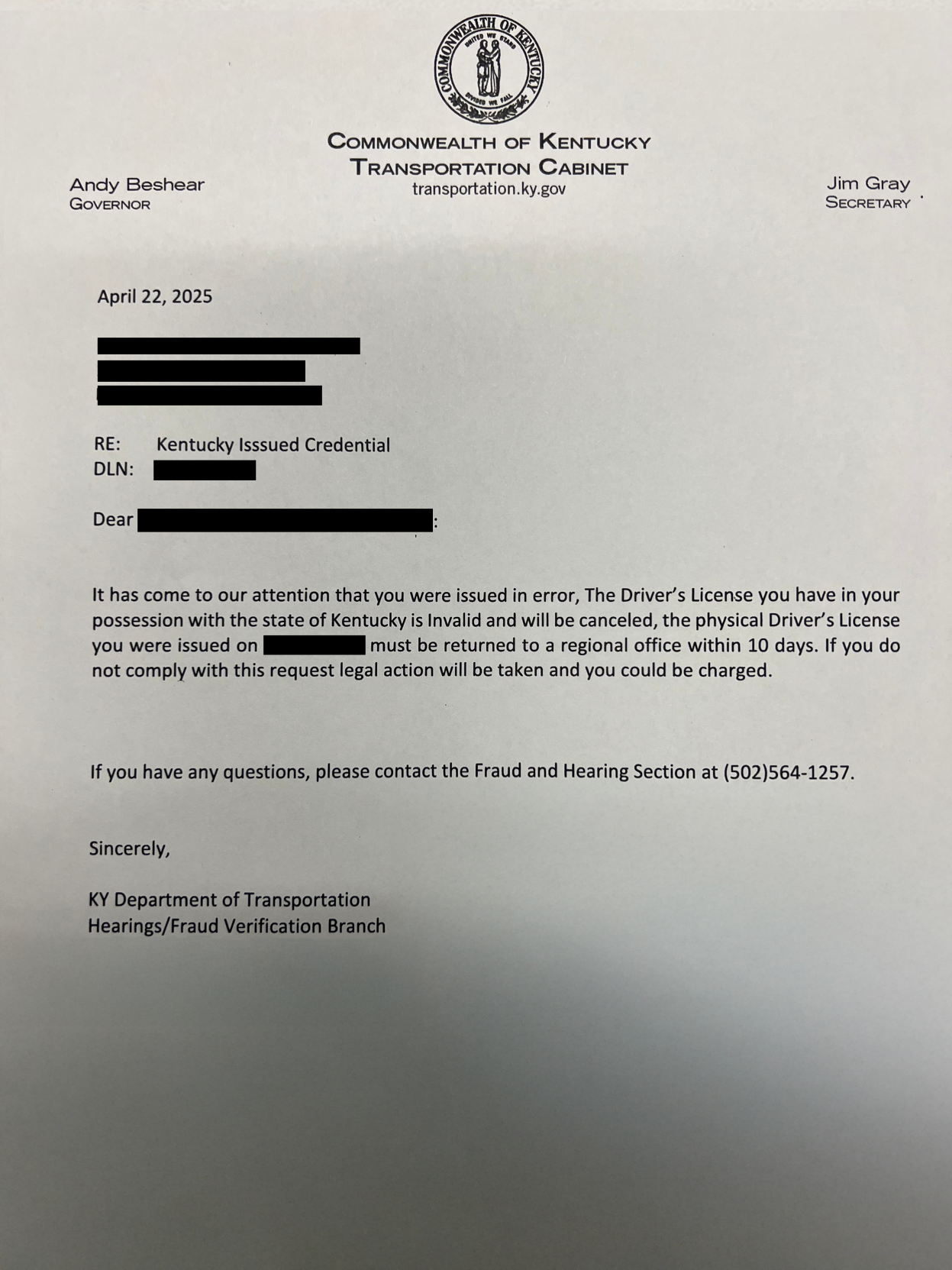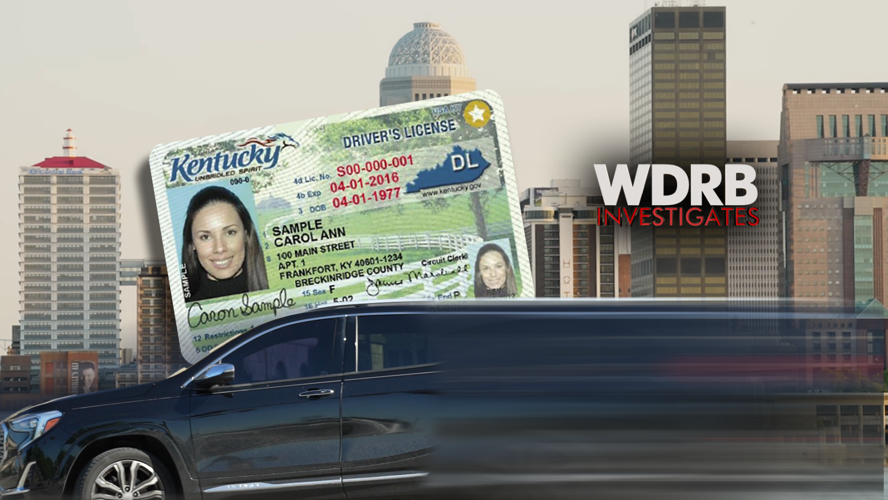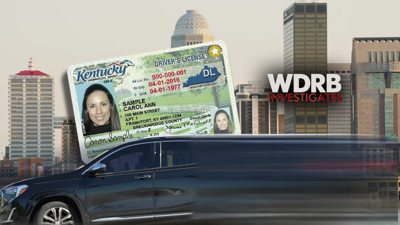LOUISVILLE, Ky. (WDRB) -- Years of delays implementing the new federal Real ID licenses have led to long lines at driver licensing regional offices, but amid the chaos, there's a sweeping fraud investigation in the Kentucky Transportation Cabinet.
Kentucky Gov. Andy Beshear said he's aware of an "ongoing criminal investigation" into fraudulently and illegally issued IDs.
"There are serious concerns and we will hold anybody accountable if they violated the law," Beshear said in a brief interview outside his office.
While he didn't detail the root cause of the investigation, sources with direct knowledge of it said there's an audit within KYTC looking into how people got driver's licenses without taking the driving test.
A leaked revocation notice sent to a driver in Louisville this month says their license was "issued in error ... invalid and will be cancelled." The notification also tells the driver to return the license to a regional office, adding "If you do not comply with this request legal action will be taken and you could be charged."
In Kentucky, someone getting their license for the first time must take a written test and then a driving test with an examiner who works for Kentucky State Police. The examiner then puts their score in a state system for workers in the transportation cabinet to issue a license if the driving test is passed and proper documentation is submitted.
Therein lies the gap. Sources told WDRB News some people had scores entered in the state's system who never took the tests.

Records show KYTC sent 1,546 letters notifying people of "irregularities" in the license they received and 736 letters notifying drivers of hearings on the matter as of March 17.
Open records requests cracked a window into the problem. The state's response to WDRB said the transportation cabinet started investigating more than five months ago. The agency sent 1,546 letters notifying people of "irregularities" in the license they received and 736 letters notifying drivers of hearings on the matter as of March 17.
"That shocks me. It really shocks me," Kentucky Driving School Instructor John Stuart said. "It's dangerous."
Stuart has taught traffic safety in Louisville for 20 years. He said traffic safety is a matter of public safety and the "error" puts a risk on the road.
"People aren't going to know the basics to driving," he said. "They're not going to know the distance to stay back, looking over the shoulder, what time to look over the shoulder or when to signal. They're just driving blank."
An emailed response from Jesse Rowe, assistant general counsel for KYTC, confirmed the driver's licensing office at the Nia Center in west Louisville and the Hardin County office in Elizabethtown are at least part of the case. It also revealed at least two terminations in the midst of the investigation.
But more detailed specifics, like who was terminated and what role they played, remain shielded from the public. The state denied all of WDRB's open records requests for documents on resignations, terminations and discipline at the branches in question along with copies of letters sent to drivers about irregularities and hearing notifications. Rowe cites ongoing criminal investigations with KSP and the U.S. Attorney's Office.
"What I can say is there are certain exceptions to the open records laws for certain ongoing investigations if it would put the investigation itself at risk — in other words, if it would tip off the people being investigated," Beshear said when pressed on the state's denial. "It's also going to be important at the right time to be fully transparent about what happened, how anything was discovered and then what action as taken."
Amy Bensenhaver, a retired assistant commonwealth's attorney, said government agencies often look for reasons to deny open record requests.
"What I've seen, especially with law enforcement, is developing methods of evasion," Bensenhaver said. "Agencies default to the position that if one or two records are exempt, all records are exempt and, ultimately, they can't disclose anything without compromising the investigation."
Bensenhaver worked as the open records guru in Kentucky's Attorney General's Office for 25 years writing opinions on when government agencies followed or misapplied the law. She currently serves as a co-director for the Kentucky Open Government Coalition.
"That paper trail creates the chain of evidence that establishes the corruption or violation or whatever it might be," Bensenhaver said. "It's also the way they get caught."
The interpretation of the law enforcement exception in Kentucky's open record statute worked its way back to the state Supreme Court in the summer of 2024 in a case pitting the Shively Police Department against the Courier Journal.
The newspaper requested dash and body camera footage, accident reports and 911 calls after a July 2020 high-speed pursuit that ended with the death of three people, including a 9-month-old girl. Shively police denied the request within 36 minutes with a blanket response citing the open investigation.
The high court determined Kentucky's law enforcement agencies and the state Attorney General's Office have been improperly relying on that statute "as a justification to shield their public records from public scrutiny for nearly 50 years," Justice Michelle Keller wrote in the opinion. "The agency must articulate some factual basis for applying the exemption that bears on the record's content."
The opinion told government agencies in no uncertain terms a blanket denial because of an open investigation was not good enough and they had the burden to prove there was an actual "concrete risk" in releasing each requested item.
KYTC said it had nearly 2,300 records in response to WDRB's requests in the license fraud case and it withheld every single one of them with one paragraph.
WDRB is challenging the state's denial in court in an effort to push the commonwealth to follow the state's current open records law so the public can understand:
- whether the KYTC has complied with various laws;
- what steps KYTC has taken to investigate the matters;
- what will happen to the Kentuckians who were erroneously issued licenses
- and who, if anyone, at KYTC will be held responsible for these consequences
Time is of the essence in this case. After the Supreme Court ruling in favor of the Courier Journal in 2024, lawmakers amended Kentucky's open record statue in the 2025 legislative session. House Bill 520's slight change may temper the High Court's decision. Justices applied the law as written, then telling law enforcement agencies they had to prove releasing records mid-investigation would do harm. The law now says the disclosure of information could pose an articulable risk of harm.
Kentucky's Open Government Coalition said HB 520 creates a laxer, looser and less onerous standard for denying the public access to records in an open case.
But the new law does not taken effect until June 27, meaning the challenge before Franklin Circuit Court should be heard under the same interpretation of law that Keller used last year.

Years of delays implementing the new federal Real ID licenses have led to long lines at driver licensing regional offices, but amid the chaos, there's a sweeping fraud investigating in the Kentucky Transportation Cabinet.
Real ID Coverage:
Lawmakers say delay of Kentucky's Real ID deadline needed as some wait in line for hours
2 weeks before Real ID deadline, 28 Kentucky lawmakers ask for another delay
Copyright 2025 WDRB Media. All Rights Reserved.












